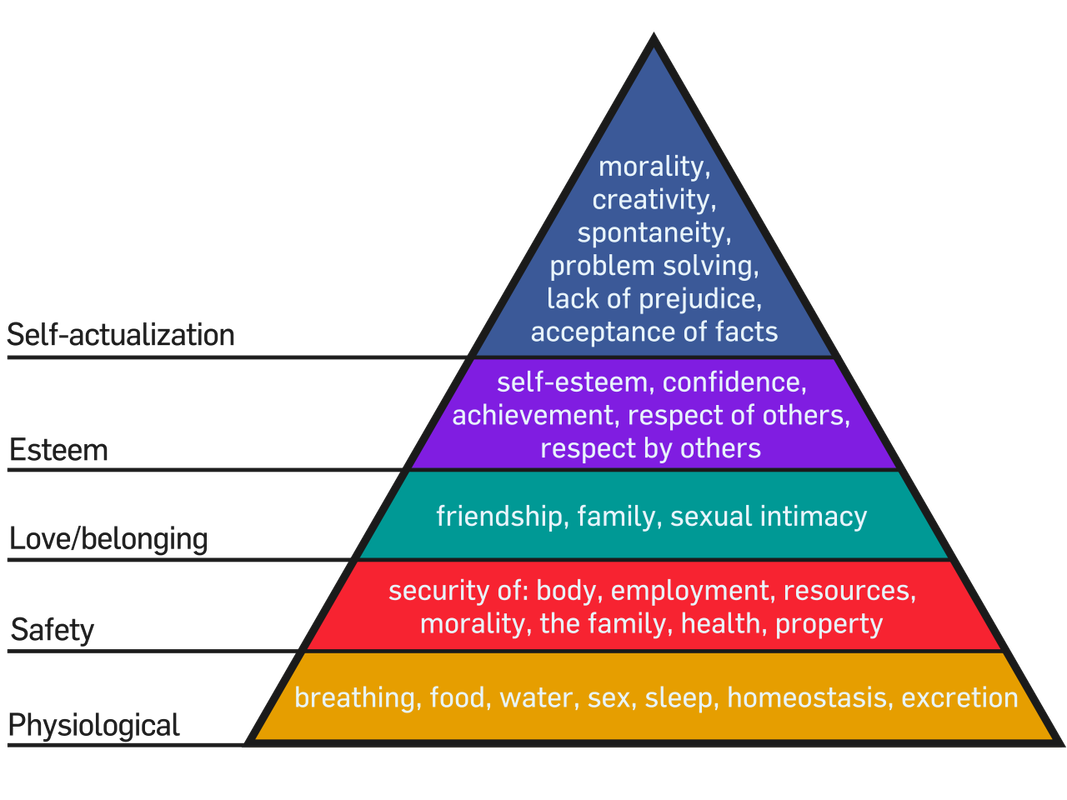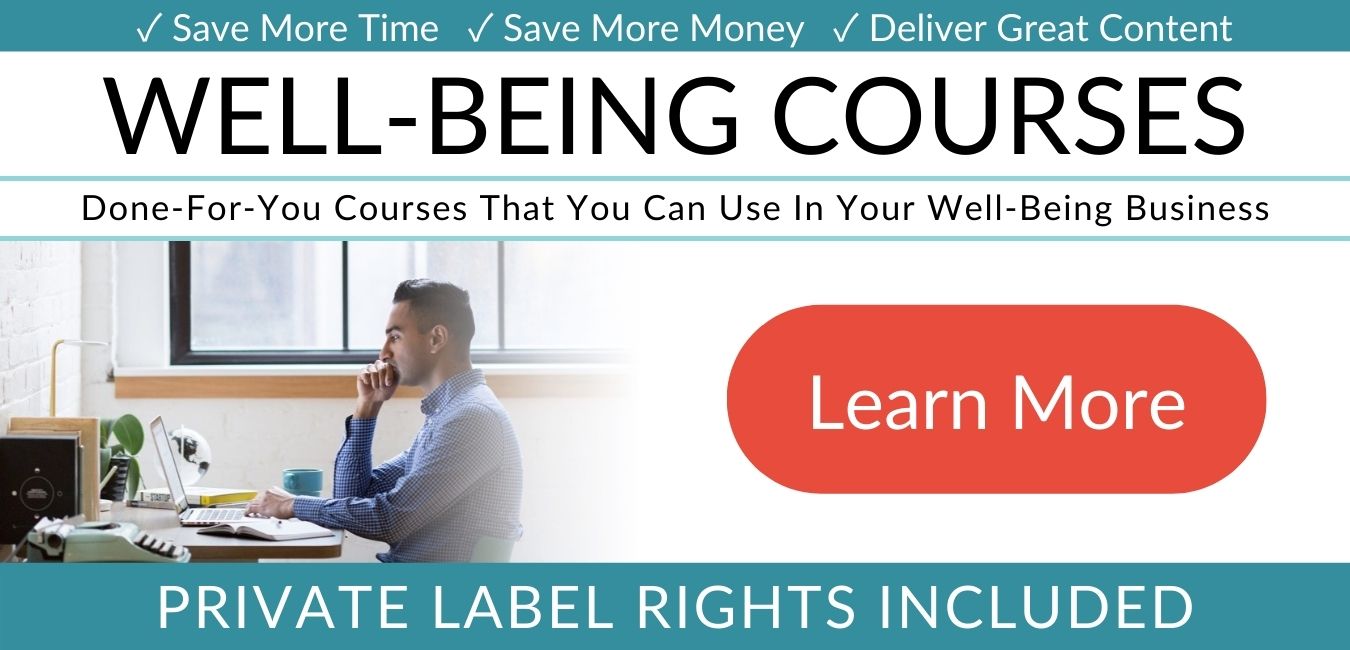What Do I Want?! 9 Tips to Figure Out What You Really Want in LifeDo you have a hard time figuring out what you want, setting goals, and moving forward? It can be tough to know what we really want. So here are some science-based tips to help you gain the clarity you need.
*This page may include affiliate links; that means I earn from qualifying purchases of products.
What Do I Want?This is a question a surprising number of us ask ourselves. We wonder, what do we want in life? What really matters? And how do we figure it out? In fact, these are questions I personally struggle with quite a bit.
If we don't know what we want, we can have a hard time setting or pursuing goals that would make us happy or improve our lives. We make moves, but they are the wrong ones. Or, rather than make the wrong move, we choose not to make any move at all. That's why it's so important to figure out what you want—what you really want—so that you can start living a life that reflects your needs, values, and goals. ✓ Before we dive in, we thought you might also be interested in taking our well-being quiz. ✓ Or, if you're a well-being entrepreneur or coach, download our Wellness Business Growth eBook to get expert tips, tools, and resources to share with your audience. Are You a Therapist, Coach, or Wellness Entrepreneur?
Grab Our Free eBook to Learn How to
|
|
Maslow's Hierarchy of Needs
Maslow proposed that some needs come before others and that the needs lower down on the hierarchy needs to be satisfied before we can attend to the needs higher up. The most important needs are basic needs like food, water, and safety. |
Next are our psychological needs, things like social connection and self-esteem. Maslow suggests that all these needs need to be satisfied before we can reach fulfillment from things like achieving our potential and being creative. Use this model to think a bit more about what needs might be of highest priority to you right now. But also keep in mind this is a somewhat old model of needs, so if it doesn't resonate with you (or if it feels too simplistic to be helpful), that's okay too.
Core Needs Theory
Some researchers have proposed another theory of needs. It proposes that we have three core needs: autonomy, relatedness, and competence.
Meeting these needs has been crucially linked to our well-being (Reis et al., 2000). This suggests that exploring what we want using this model may be helpful. For example, ask yourself, do you feel that any of these three needs are lacking in your life? If so, which one(s)? How do you want things to be different? And what will you do to make that happen?
Some researchers have proposed another theory of needs. It proposes that we have three core needs: autonomy, relatedness, and competence.
- Autonomy. The belief that our actions are directed and in alignment with our true selves.
- Relatedness. The feeling that we are connected to those who are important to us.
- Competence. We can successfully bring about the outcomes we desire.
Meeting these needs has been crucially linked to our well-being (Reis et al., 2000). This suggests that exploring what we want using this model may be helpful. For example, ask yourself, do you feel that any of these three needs are lacking in your life? If so, which one(s)? How do you want things to be different? And what will you do to make that happen?
3. What Do I Want: What Are Your Values?
Another area to explore when trying to figure out what you want is your core values. Values are somewhat more abstract than goals, but they serve as guiding principles that help us move forward in ways that matter to us (Roccas, Sagiv, Schwartz, & Knafo, 2002). Each of us has different values and we often feel better about our lives when we're living by our values. So knowing what we value can point us to what we want. You can explore your personal values here.
4. What Do I Want: What Gives You a Sense of Purpose?
Another thing to consider when asking "what do I want?" is what gives you a sense of purpose? Generally, we derive a sense of purpose when we do things for others or improve their lives, even in small ways. For example, we might take joy in cooking dinner for our family, saying a kind word to a stranger, making something that others use, or improving the world in some way. For these reasons, it can be helpful to think through not only what we want, but what impact we want to have on others. This is often a better route to choosing activities that actually make us feel good.
Video: What Do You Really Want?
5. What Do I Want: What Activities Lead You to Flow?
Flow is a positive state we experience when we are totally connected to our performance (Jackson & Marsh, 1996). It's thought to be a peak experience because it involves an activity being just the right fit for our skills. We enjoy it so much that time seems to fly by and we are extra productive.
So ask yourself, are there any activities that are so enjoyable you lose track of time, maybe even forgetting to eat or use the restroom? Is there a way you can do these activities more and make them a more integral part of your life?
So ask yourself, are there any activities that are so enjoyable you lose track of time, maybe even forgetting to eat or use the restroom? Is there a way you can do these activities more and make them a more integral part of your life?
6. What Would You Want if There Were No Limits?
Some of us have a hard time knowing what we want because we don't want to think about things that we can't have. I know I struggle with this. Last year, I realized what I really wanted was to move back to my home town to be near family and friends (to meet my need for relatedness), but I couldn't really afford to live there. I hadn't allowed myself to know what I really wanted because I didn't think I could have it. It wasn't until I realized that if it was that important to me, I'd figure out some way to get it. And now I have a 2-year plan that'll help me get there.
When asking yourself this question, keep the previous discussion points in mind. Wanting a million dollars makes no difference if you don't know the meaningful things you'd spend it on. Wanting to have some fancy job doesn't matter if the job isn't a good fit for your needs, values, and interests. But expanding your mind by thinking of the big, maybe even impossible life goals can help you get more clarity of the deeper wishes that you may have buried.
When asking yourself this question, keep the previous discussion points in mind. Wanting a million dollars makes no difference if you don't know the meaningful things you'd spend it on. Wanting to have some fancy job doesn't matter if the job isn't a good fit for your needs, values, and interests. But expanding your mind by thinking of the big, maybe even impossible life goals can help you get more clarity of the deeper wishes that you may have buried.
7. What Do I Want: Who Do You Admire (or Get Jealous Of)?
Emotions can be helpful indicators that try to cue you into what you really want. Maybe you admire someone who has made an impact on the world in some important way. Or maybe you notice that you're jealous of someone who has a career that you wish you had. Although jealousy isn't a fun emotion, it may be trying to tell you that you want something that someone else has. If that's genuinely true, ask yourself if you had it, would it really make you happy? And if so, ask yourself, what you can do to get it?
8. What Do I Want: How Do You Envision the Gestalt of Your Life?
Gestalt is German for "pattern", "shape", or "configuration". In psychology, it is the idea that the whole is different than the sum of its parts. The parts interact with each other producing something entirely different (Rock & Palmer, 1990).
I believe Gestalt theory applies when it comes to identifying what we want. Often, changing one small thing in our lives doesn't have the large and sustained impacts that we desire. For example, if we are someone who wants love then we find it, we may still not be happy if we do not yet love ourselves. Or, if we want to lose weight and we are successful in doing so, we may still be the person we wanted to escape and therefore, not feel satisfied even when we reach our goal.
To my mind, this is one reason why identifying what we want can be so difficult. What we really want is to change the gestalt of our lives, the overall pattern of things in some way. Naming and planning out how we reach some small specific goal can feel unsatisfying because deep down we know it won't change our lives.
But, this insight also points to a new way to clarify what we really want. Ask yourself, what kind of life do you want to lead? What patterns do you want your life to follow? And how do you want the pieces of your life to work together? These are big, difficult questions, but seeking their answers can be helpful.
I believe Gestalt theory applies when it comes to identifying what we want. Often, changing one small thing in our lives doesn't have the large and sustained impacts that we desire. For example, if we are someone who wants love then we find it, we may still not be happy if we do not yet love ourselves. Or, if we want to lose weight and we are successful in doing so, we may still be the person we wanted to escape and therefore, not feel satisfied even when we reach our goal.
To my mind, this is one reason why identifying what we want can be so difficult. What we really want is to change the gestalt of our lives, the overall pattern of things in some way. Naming and planning out how we reach some small specific goal can feel unsatisfying because deep down we know it won't change our lives.
But, this insight also points to a new way to clarify what we really want. Ask yourself, what kind of life do you want to lead? What patterns do you want your life to follow? And how do you want the pieces of your life to work together? These are big, difficult questions, but seeking their answers can be helpful.
Quotes on 'What Do I Want'
- “When what you value and dream about doesn’t match the life you are living, you have pain.” ― Shannon L. Alder
- “First set a strong and clear inner voice and then do all that you want to achieve and the door will be opened.” ― Amit Ray
- “Moving on will show you a lot about who you are, what you truly want, & what you have no desire to waste your time on.” ― April Mae Monterrosa
- “The only way to get everything you want in life is to be very clever about what you want.” ― George Hammond
- “Not everything you're good at is what you're called to do.” ― Joyce Rachelle
- “Never allow your mind to decide what you have, when your heart knows what you want.” ― RJ Intindola
Video: Figure Out What You Really Want
9. What Don't You Want?
One more way to figure out what you do want is by being clear about the things you don't want. List the things that are most important to keep out of your life. Perhaps your list will include things like hate, injustice, loneliness, etc... Once you have your list, think about what is left. What kind of life could you make from more positive experiences? What goals can you set to try to avoid the experiences you don't want?
More Reading to Get What You Want
Here are a few more articles that you may be interested in:
- "Who Am I?" + Other Questions to Know Yourself Better
- How to Manifest Something (Manifest Love, Money, or Anything)
- Life Goals: Definition, Examples, & Strategies for Setting Personal Goals
- Vision Boarding: Ideas, Examples, Supplies, and More
- How to Change: 6 Science-Based Tips & Strategies
- Wish Lists: Ideas, Examples, & Quotes
- Needs and Wants: Definition, Difference, & Examples
- Bucket List Ideas: 211 Fun, Unique, & Travel Ideas
Books Related to Knowing What You Want
If you’d like to keep learning more, here are a few books that you might be interested in.
Final Thoughts on "What Do I Want?"
Don't give up on exploring what you want and pursuing your dreams. Your life is what you make it, and it's worth trying to make it what you want it to be.
Don't Forget to Grab Our Free eBook to Learn How to
Grow Your Wellness Business Exponentially!
References
- Huta, V., & Waterman, A. S. (2014). Eudaimonia and its distinction from hedonia: Developing a classification and terminology for understanding conceptual and operational definitions. Journal of Happiness Studies, 15(6), 1425-1456.
- Jackson, S. A., & Marsh, H. W. (1996). Development and validation of a scale to measure optimal experience: The Flow State Scale. Journal of sport and exercise psychology, 18(1), 17-35.
- Reis, H. T., Sheldon, K. M., Gable, S. L., Roscoe, J., & Ryan, R. M. (2000). Daily well-being: The role of autonomy, competence, and relatedness. Personality and social psychology bulletin, 26(4), 419-435.
- Roccas, S., Sagiv, L., Schwartz, S. H., & Knafo, A. (2002). The big five personality factors and personal values. Personality and social psychology bulletin, 28(6), 789-801.
- Rock, I., & Palmer, S. (1990). The legacy of Gestalt psychology. Scientific American, 263(6), 84-91.
Are You a Therapist, Coach, or Wellness Entrepreneur?
Grab Our Free eBook to Learn How to Grow Your Wellness Business Fast!
Key Articles:Content Packages:







